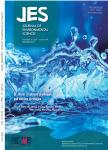A system dynamics urban water management model for Macao, China
A system dynamics urban water management model for Macao,China作者机构:State Key Laboratory of Water Environment Simulation School of Environment Beijing Normal University Beijing 100875 China. Department of Civil and Environmental Engineering University of Macao Macao 999078 China
出 版 物:《Journal of Environmental Sciences》 (环境科学学报(英文版))
年 卷 期:2016年第28卷第12期
页 面:117-126页
核心收录:
学科分类:0303[法学-社会学] 03[法学] 082802[工学-农业水土工程] 030302[法学-人口学] 08[工学] 0828[工学-农业工程]
基 金:supported by the State Key Program of National Natural Science of China (No. 41530635) the MYRG072 (Y1-L2)-FST13-LIC the National Science Foundation of China (No. 51278054) the Fund for Innovative Research Group of the National Natural Science Foundation of China (No. 51421065)
主 题:Macao System dynamics Water conservation willingness Water demand
摘 要:Urban water resources have been facing significant pressure from population growth, urbanization, and climate change. A system dynamics urban water management model was proposed to simulate the dynamic interactions between urban water demands and society, economy, climate, and water conservation. The residents' water conseration willingness was incorporated in the model and water-saving effects were quantified. The simulation results for Macao showed that population size was the main driving force for urban water demand. The change of temperature and precipitation has obvious effects on the landscape water demand. The water demand output is sensitive to the change in population, per capita demand, and temperature. Increased precipitation will reduce urban water demand and increased economic growth will increase water demand. By implementing integrated water conservation measures and imoroved water conservation willinmaess, water demand could be reduced bv 17.5%.



